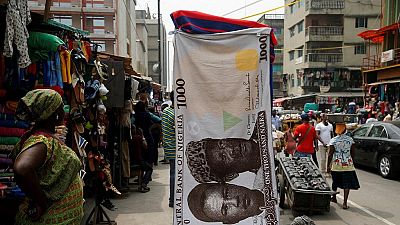Nigeria
The monetary policy committee of the Central Bank of Nigeria has warned that Nigeria may head for another economic recession due to weak economic fundamentals currently visible in the economy.
Addressing newsmen shortly after the two-day meeting of the MPC members held at the headquarters of the apex bank, the Central Bank of Nigeria (CBN) Governor,Godwin Emefiele, said the economy had started showing signs of weakness.
Africa’s most populous nation’s economy exited recession in 2017 after suffering contraction for five consecutive quarters.
However, the CBN governor reiterated that the committee was concerned that there was a fresh threat of recession as the economy recorded growth rate of 1.95 per cent and 1.5 per cent during the first and the second quarters of this year, respectively.
According to him, the slowdown emanated from the oil sector, with strong linkages to employment and growth.
The apex bank boss noted that the late implementation of the 2018 budget, weakening demand and consumer spending, rising contractor debts, and low minimum wage were some of the risks to output growth.
Others he said include, the impact of flooding on agricultural output, continued security challenges in the North-East and North-Central zones, and growing level of sovereign debts.
“The MPC observed that despite the under performance of key monetary aggregates, headline inflation inched up to 11.23 per cent in August 2018 from 11.14 per cent in July 2018,” he added.
Nigeria Economy Heading Towards Another Recession – CBN Warns https://t.co/eREeMYsYuS
— TM News Nigeria (@TmNewsNG) September 26, 2018
On what could be done to stimulate economic activities, the CBN governor said that though growth remained weak, the effective implementation of the 2018 Federal Government budget and policies that would encourage credit delivery to the real sector of the economy might boost aggregate demand, stimulate economic activity and reduce unemployment in the country.












Go to video
Ethiopian bank seeks to recover millions lost after technical glitch
01:14
South Africa narrowly avoids recession in Q4 amid sluggish growth
00:56
Liberian President Launches Anti-Corruption Audits
Go to video
Tunisia wants to borrow billions from its Central Bank
Go to video
German bank provides 257 million euros in loans and grants for Morocco
01:14
Zimbabwe: banking sector faces 75% job decrease Since 2000